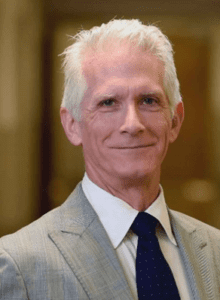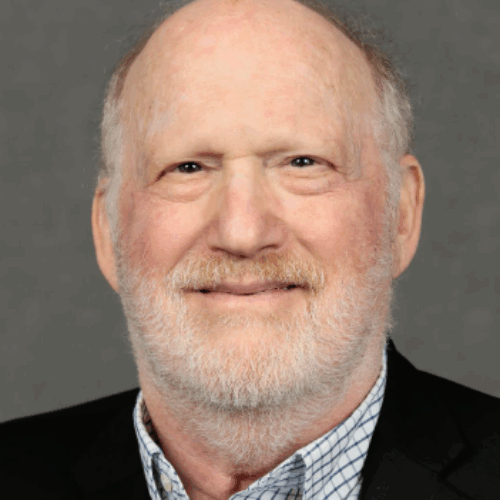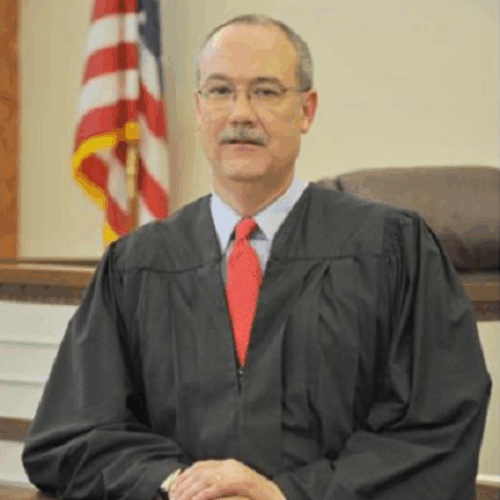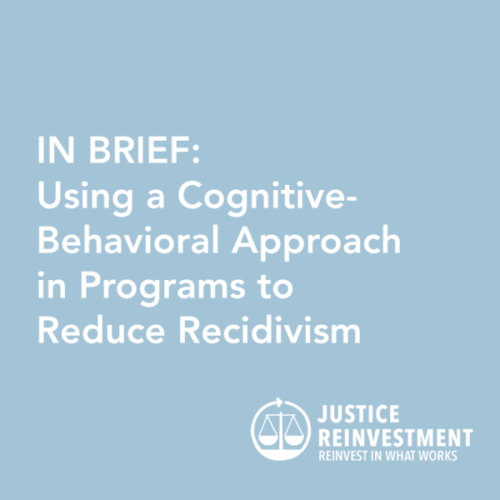
How One Psychiatrist is Helping People in the Justice System with a Free, Online Resource

With a renewed focus on ways to address mental health concerns in the criminal justice system, The Council of State Governments Justice Center and the American Psychiatric Association Foundation have partnered to highlight leaders who are working to get people the help they need through innovative practices and programs. This feature is the first in a series under the Judges and Psychiatrists Leadership Initiative.
As senior editor of the Oxford Textbook of Correctional Psychiatry and author of more than 180 peer-reviewed articles and other publications, Dr. Robert L. Trestman has seen his fair share of ideas about how to best address the psychiatric needs of people in custody. But it is his work with START NOW, a program he co-developed in 2007, that he believes can make the greatest impact on people’s lives.
This skills-based, manual-guided program uses group psychotherapy methods to help people in the justice system manage their mental illnesses and substance use disorders. With cognitive behavioral therapy (CBT) as its foundation, START NOW enables participants to recognize situations that trigger unwanted behavior and cope with the thoughts and feelings that contribute to this behavior. It also combines CBT with interventions such as motivational interviewing, dialectical behavioral therapy, and gender-responsive facilitation, with specific participant workbooks that offer separate guidance for men and women.
“There’s nothing new in START NOW, and that’s part of the beauty of it. It’s taking what already exists and bringing it together in a synthetic [and] modular fashion to make it easy to learn, easy to teach, and easy to implement,” said Dr. Trestman, who is also an American Psychiatric Association council member. Because of this, he added, “people have more control over their emotions and behaviors so they’re less likely to get into trouble.”
And as a result, Dr. Trestman has had people in custody express how much the program has helped them. “[They can] negotiate rather than just act, so when they talk with correctional officers, they can do so in a way that gets their needs met … rather than using force, which has obviously not worked for them in the past.”
START NOW has been shown to be effective in reducing criminal behavior, inpatient psychiatric hospitalization, and recidivism; results from an evaluation of over 900 participants showed a meaningful improvement in the incident rates of disciplinary reports and subsequent psychiatric inpatient bed days. To the benefit of corrections agencies—which often face obstacles related to lack of resources—it is also available online for free.
“It was really important to all of us [on the team] that the product not cost anything … because virtually every prison is financially under-resourced,” he said.
While START NOW was originally developed to be used in corrections facilities, it has since been adapted for forensic psychiatric hospitals and some community settings, such as outpatient-based opioid treatment. Mental health professionals in all three areas appreciate the way it is designed and the fact that most clinicians can apply the training and skills they already possess to begin administering the program almost immediately. “Facilitators in mental health like using it, because just like a teacher with a lesson plan, it gives you a structure of what to do, how to do it, and what to look for,” said Dr. Trestman. “It makes it so simple, and it gives you a sense of empowerment as a clinician that you can make a difference.”
While the positive feedback Dr. Trestman has received from both people in custody and mental health professionals facilitating the program is affirming, he noted that the benefits are particularly significant for corrections staff. “[They’ve told us] custody feels happier because there are fewer incidents … so it ends up reducing workplace trauma,” he said.
Reflecting back on his career, Dr. Trestman believes that the START NOW program is perhaps his most meaningful accomplishment. “Frankly … I’ve done a lot of bench research, I’ve done a lot of psychopharmacological research, and none of that has impacted the lives of people the way this has.”
Headshot photo: Courtesy of Dr. Robert L. Trestman, chair of the Carilion Clinic and Virginia Tech Carilion School of Medicine Department of Psychiatry and Behavioral Medicine in Roanoke, VA
ABOUT THE AUTHOR
"AOT is a complex community intervention that can be effective or not depending on how it is implemented.…
Read MoreThe Judge Stephen S. Goss Memorial Award for Leadership has expanded to include Lifetime Achievement Awards and, in…
Read More Involuntary Treatment for Patients in the Justice System: Q&A with Dr. Marvin Swartz
Involuntary Treatment for Patients in the Justice System: Q&A with Dr. Marvin Swartz
"AOT is a complex community intervention that can be effective or not…
Read More 2025 Nominations Now Open for Judges and Psychiatrists Improving Lives and Behavioral Health
2025 Nominations Now Open for Judges and Psychiatrists Improving Lives and Behavioral Health
The Judge Stephen S. Goss Memorial Award for Leadership has expanded to…
Read More












